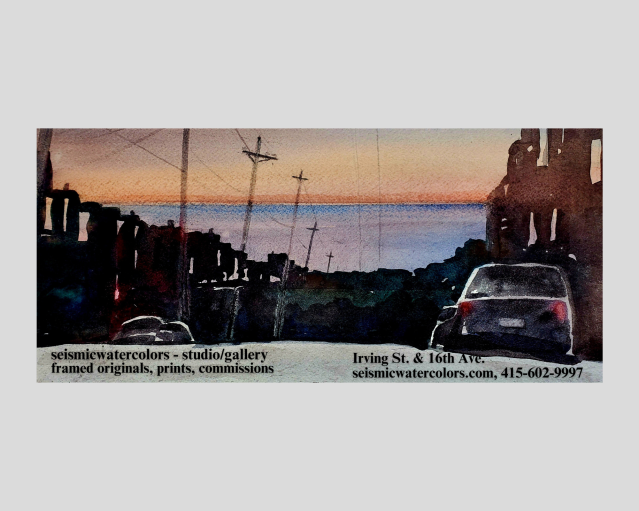Where is the Inventory?
by John M. Lee
I was at a statewide real estate conference in January and all of the talk was about the
lack of inventory.
In San Francisco, we are a city that is approximately seven-miles-by-seven-miles in
size, with most of our land fully built out. So, when the supply of available homes on the
market slows down, prices go up. It’s the simple economic law of supply and demand.
But, why is the housing supply so tight to begin with?
There are several reasons why we are so low on inventory at this point in time. Because
San Francisco is a very desirable place to live, with its mild climate, diverse culture, good
economy and recreation for everyone, we have had a net migration into San Francisco.
And, with growth we need more housing, which we have not been able to build fast
enough to meet demand. Part of the reason is because building in San Francisco
is so expensive, as well as being difficult for developers, who have to jump through so
many hoops.
It feels like everything that has been built recently is luxury housing, and there has been
lots of push back in regards to those types of units. However, with each new luxury
home that is sold, the person who buys that house might have to sell their existing home
to buy it. And another person will buy that one, etc., so one new home sale could trigger
more sales and create more inventory.
Another reason is that the tax laws discourage selling in our area. When selling a home,
and if the owner has lived in that home as his or her principal residence for the last two
out of five years, the first $250,000 of gain for a taxpayer who is single and $500,000 if
married are excluded from taxes. With the recent high rate of appreciation, anyone who
has owned their home in this area for a while will have to pay a capital gains tax
if selling. Thus, many homeowners are making the decision to keep their homes
and not sell.
Also, because of Proposition 13, which limits increases in property taxes to 2 percent per
year on the sales price of the property, the property taxes they are currently paying are
relatively low. When they buy another home, they would be paying much higher
property taxes. Thus some are making the decision to stay in their current home instead
of buying another one, further decreasing our inventory.
The new tax law that just passed will also hurt inventory as the cap on the mortgage
interest deduction has been reduced from $1 million to $750,000. This will hurt
homebuyers who take out a mortgage for more than this amount. Also because
existing owners are grandfathered in and can maintain the $1 million interest deduction
level, they have less incentive to move and thus might stay put, taking away from
potential inventory.
What can we do to alleviate this inventory problem?
Part of the solution is to build more housing and to streamline the process so that
approvals are easier. It is extremely difficult to build in San Francisco as there is
so much red tape a developer must navigate, leading to higher costs and delays. These
costs get passed through to buyers, further increasing prices.
Building faster and more efficiently will help alleviate our housing crisis. A housing
group is working to gather signatures to put a measure on the November ballot
so that people over the age of 55 can sell their principal residence and purchase another
home anywhere in California while maintaining their property tax basis. This would
help some seniors with moving to a new location while freeing up some inventory.
This issue is extremely complex and we will need more creative ideas to increase our
housing inventory and provide housing for all. Our housing crisis did not happen
overnight and will take time to resolve. The faster we can solve this inventory
problem the faster we will return to a normal real estate market.
John M. Lee graduated from UCLA with a MBA in real estate and finance. For questions
about real estate, call (415) 447-6231 or e-mail johnlee@isellsf.com.
Categories: Real Estate











